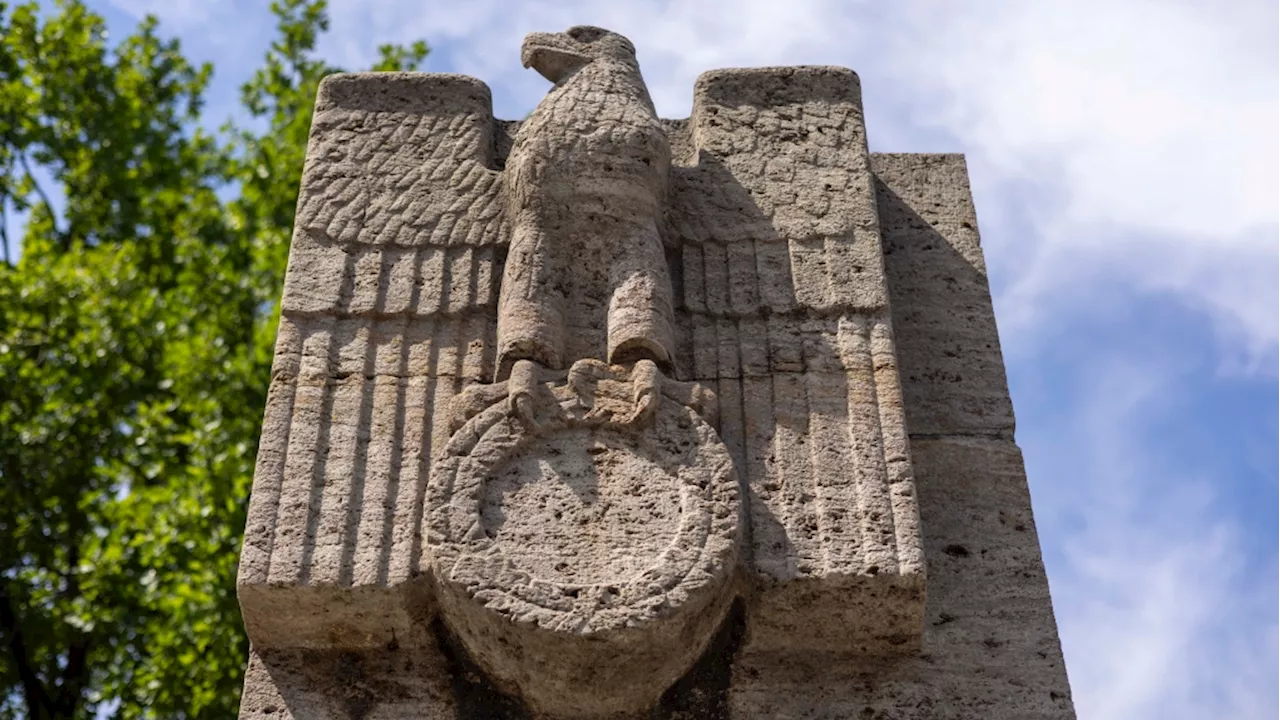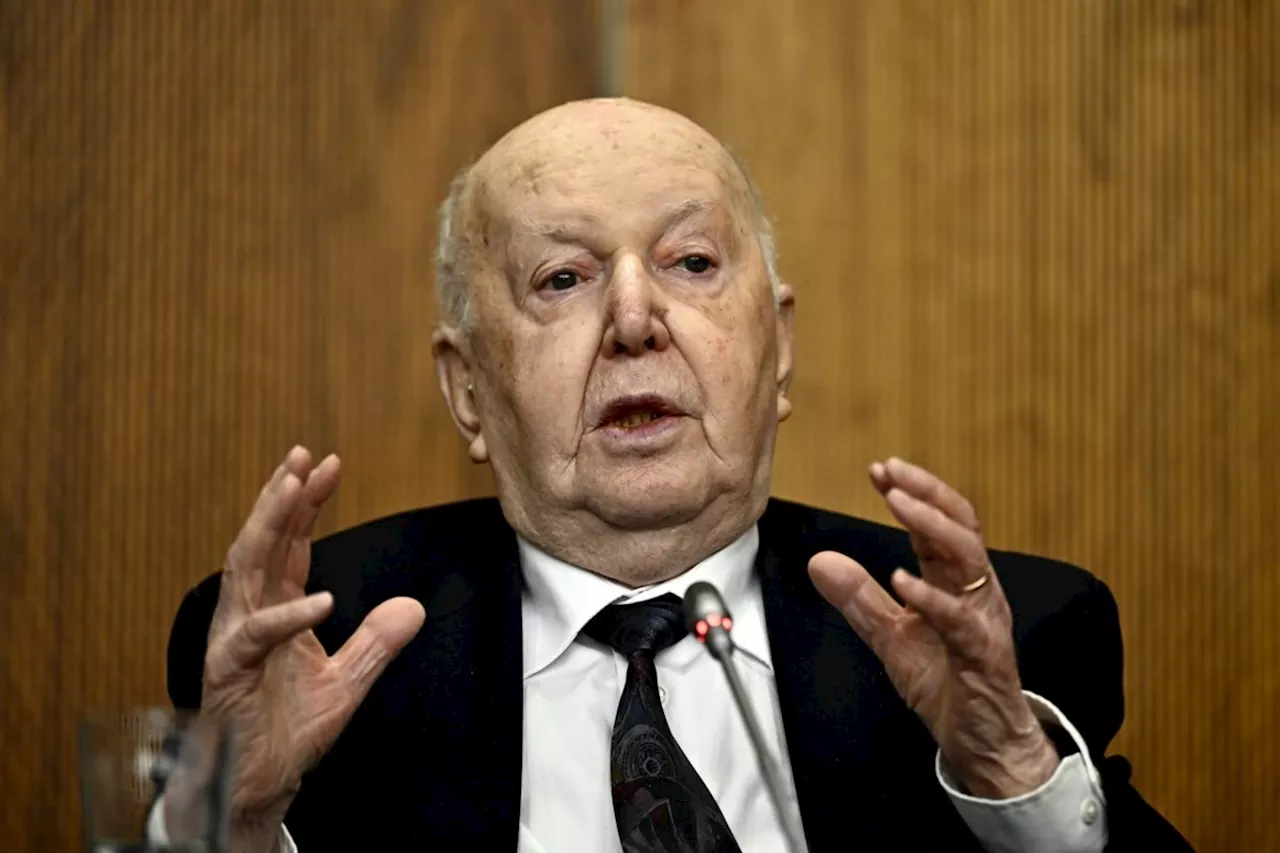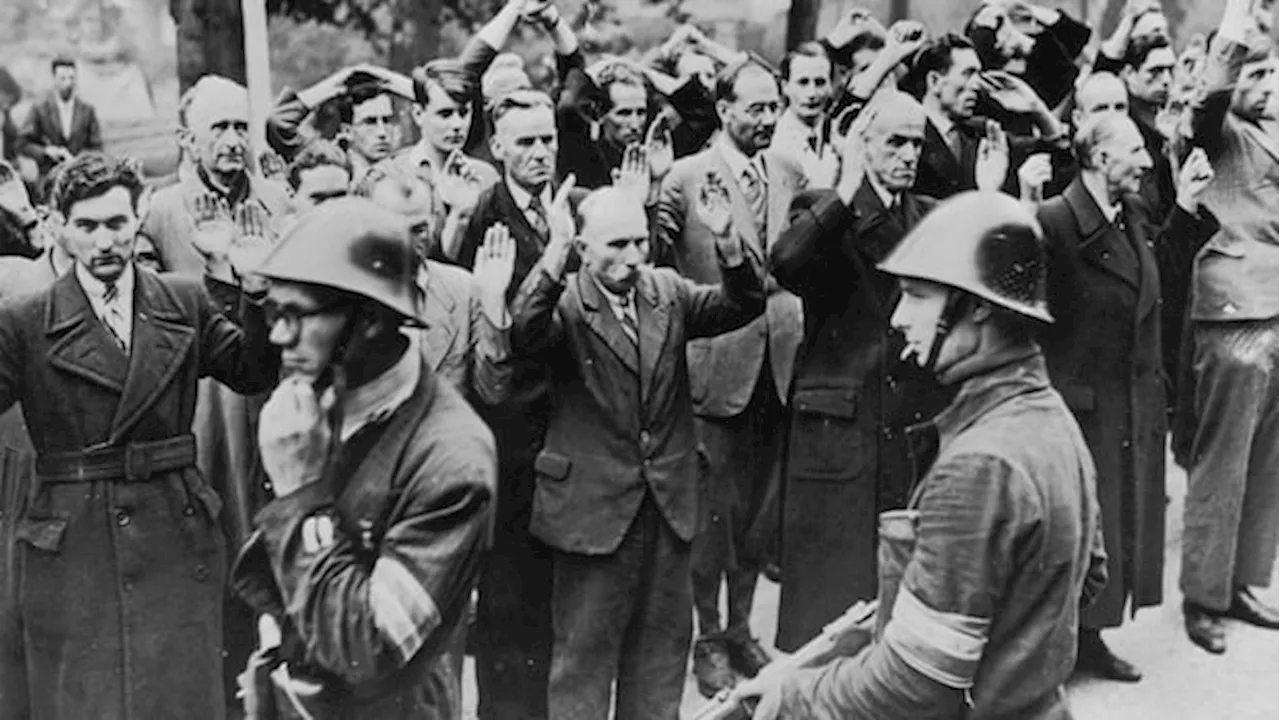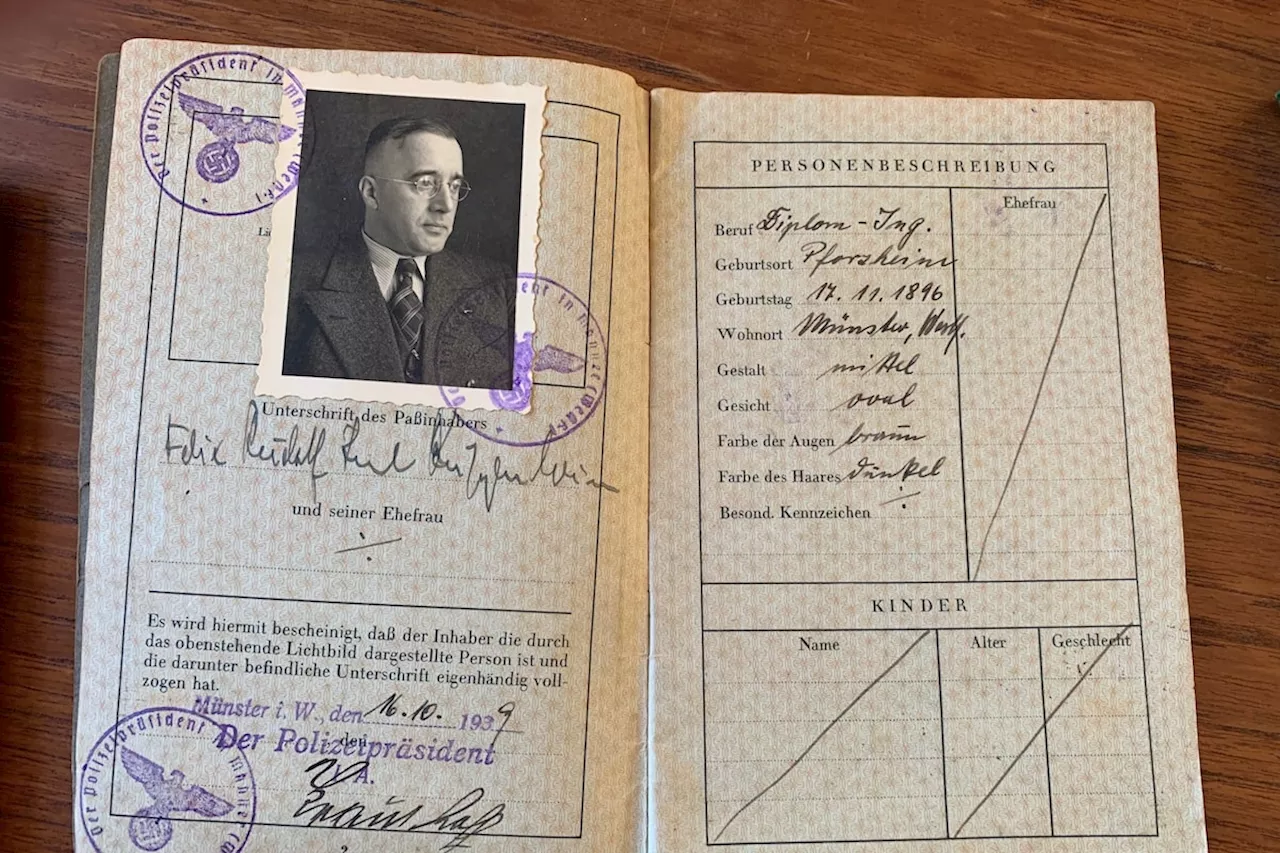A Vancouver professor's discovery of his grandfather's meticulously preserved personal archives, spanning from 1940 to 1948, offers a powerful glimpse into the harrowing realities of Nazi Germany and the desperate struggle for survival during the Holocaust.
The six or seven boxes of carefully preserved documents – 10,000 pages in all – were hand-delivered to Timothy Taylor. The boxes contained an anguished family history shattered by the Holocaust , including details he never knew, and they came with a duty he wasn’t sure he could fulfill. Prof. Taylor, an award-winning writer and creative-writing professor at the University of British Columbia, was at home in Vancouver in 2019 when his sister arrived from Edmonton with the boxes.
“My mother told my sister before she died that I would know what to do with them,” Prof. Taylor said. “I wasn’t so sure, I thought, ‘I hope she’s right.’ ”Inside the boxes were letters, diaries and photographs, his grandfather’s records from 1940 to 1948, from his life in Nazi Germany and beyond. The fragile letters, some from even further back, were yellowed with age. Written in German, their meaning had been buried beneath decades of silence. Prof. Timothy Taylor has donated his grandfather’s archives to the Vancouver Holocaust Education Centre and the UBC Library. As Prof. Taylor sifted through the archive, he found a story of escape, loss and survival. He also quickly understood that the boxes contained what UBC librarian Robert Stibravy describes as a “gold mine for historians.” As per his mother’s wishes, Prof. Taylor has donated his grandfather’s archives to the Vancouver Holocaust Education Centre (VHEC) and the UBC Library. The digitization of the archive is set to be completed in August and it will be open to researchers worldwide.But Prof. Taylor wanted to go a step further., which launches Monday on International Holocaust Remembrance Day. “This isn’t just history. It’s the real-time thoughts of people experiencing it. That’s what makes it powerful,” Prof. Taylor said. Prof. Taylor’s grandfather, Felix Kuppenheim, was an engineer in Germany when the Second World War began. His brother, Hans Kuppenheim, a physicist, had managed to escape to New York in 1939, but Felix had no way out. In 1940, the Nazis began mass deportations of German Jews. Among those targeted were Hans and Felix’s parents, Prof. Taylor’s great-grandparents. UBC Public Affairs/Supplied Rudolph Kuppenheim, a well-known doctor, and his wife, Lilly, were from Germany’s Baden region. Rather than board the train bound for the French holding camp of Gurs – a notorious transit point to Auschwitz – they took morphine and ended their own lives. Shortly after, Felix secured a visa to leave behind the horrors he had witnessed. Many countries including; with few options remaining, Felix headed for Ecuador. He fled eastward across Europe, taking the Trans-Siberian Railway through Russia, and then boarded a boat across the Pacific. “I have everything,” Prof. Taylor said. “His train tickets. His passport with the stamps. A receipt for a cup of coffee in Moscow. The passenger list for the ship that took him to Ecuador. He just kept everything.” Felix Kuppenheim fled eastward across Europe, taking the Trans-Siberian Railway through Russia, and then boarded a boat across the Pacific. He kept the itinerary for his train ride for decades. The archive also includes years of letters between the two brothers – written in desperation, frustration and hope – detailing their attempts to get Felix’s family out of Germany. For Prof. Taylor, it was the rage that stood out. “I never knew my grandfather as an angry man,” he said. “But in these letters, he hated Germany. He hated what fascism had done to him and his family.”While Felix fled to safety, his wife and his daughter Ursula Kuppenheim – Prof. Taylor’s mother – were left behind. Ursula, who was of mixed heritage, was labeled a “Mischling” – a derogatory term meaning “half-breed,” in German, a synonym at the time for “half-Jewish.” It meant that she wasn’t immediately deported, but life became increasingly brutal for her. Access to education and to multiple public services became limited. By 1944, she was in hiding in the north of Germany, scared for her life. Prof. Taylor did not know much about this growing up. His mother rarely spoke of the war. But small clues broke through her strict pacifism: the way she flinched at certain sounds, the time she snapped at her children for pretending to play with toy guns. The digitization of Felix Kuppenheim’s archive is set to be completed in August and it will be open to researchers worldwide. “It was too traumatic to revisit these things in detail … she wanted to shield her children from the worst of it,” Prof. Taylor said. After the war, Ursula built a new life in Guayaquil, Ecuador, before marrying Prof. Taylor’s father, a Canadian engineer, and eventually immigrating to Canada. She died in March, 2006. Prof. Taylor speculates that beyond the trauma of revisiting painful memories, his mother may have also kept quiet out of necessity.
HOLOCAUST GERMANY FAMILY HISTORY ARCHIVES ESCAPE SURVIVAL NAZI GERMANY HISTORY
Canada Latest News, Canada Headlines
Similar News:You can also read news stories similar to this one that we have collected from other news sources.
 Dutch Archive of WWII Nazi Collaborators Released PubliclyA Dutch project called 'War in Court' has digitally released a list of nearly half a million suspected wartime Nazi collaborators. The archive, consisting of 32 million pages, includes information about individuals investigated for collaboration with German occupiers during World War II.
Dutch Archive of WWII Nazi Collaborators Released PubliclyA Dutch project called 'War in Court' has digitally released a list of nearly half a million suspected wartime Nazi collaborators. The archive, consisting of 32 million pages, includes information about individuals investigated for collaboration with German occupiers during World War II.
Read more »
 Musk Praises Germany's Alternative for Germany, Sparks ControversyElon Musk, facing recent criticism for a potential 'Seig Heil' gesture, addressed Germany's far-right party, Alternative for Germany, praising their movement and expressing views on multiculturalism and past guilt. Musk's remarks, delivered via video link, sparked protests and renewed debate about his stance on historical issues.
Musk Praises Germany's Alternative for Germany, Sparks ControversyElon Musk, facing recent criticism for a potential 'Seig Heil' gesture, addressed Germany's far-right party, Alternative for Germany, praising their movement and expressing views on multiculturalism and past guilt. Musk's remarks, delivered via video link, sparked protests and renewed debate about his stance on historical issues.
Read more »
 Survey says more young Canadians believe the history of the Holocaust is exaggeratedDeborah Lyons, Canada's special envoy on antisemitism and Holocaust remembrance, said the world faces a challenge as the number of living Holocaust survivors continues to dwindle.
Survey says more young Canadians believe the history of the Holocaust is exaggeratedDeborah Lyons, Canada's special envoy on antisemitism and Holocaust remembrance, said the world faces a challenge as the number of living Holocaust survivors continues to dwindle.
Read more »
 Holocaust Survivor Appalled by Musk's Gesture, Trump's ActionsA 95-year-old Holocaust survivor, David Moscovic, expresses his deep concern over Elon Musk's gesture perceived as a Nazi salute and Donald Trump's pardon of January 6th protesters.
Holocaust Survivor Appalled by Musk's Gesture, Trump's ActionsA 95-year-old Holocaust survivor, David Moscovic, expresses his deep concern over Elon Musk's gesture perceived as a Nazi salute and Donald Trump's pardon of January 6th protesters.
Read more »
 Netherlands releases list of 425,000 suspected Nazi collaborators online21st October 1944: Armed Dutch patriots round up fellow townspeople accused of collaborating with the Nazis in Nijmegen. (Photo by Keystone/Getty Images)
Netherlands releases list of 425,000 suspected Nazi collaborators online21st October 1944: Armed Dutch patriots round up fellow townspeople accused of collaborating with the Nazis in Nijmegen. (Photo by Keystone/Getty Images)
Read more »
 Holocaust Survivor and Oldest Living Olympic Medalist Agnes Keleti Dies at 103Agnes Keleti, a Hungarian gymnast who won 10 Olympic medals and survived the Holocaust, passed away at the age of 103.
Holocaust Survivor and Oldest Living Olympic Medalist Agnes Keleti Dies at 103Agnes Keleti, a Hungarian gymnast who won 10 Olympic medals and survived the Holocaust, passed away at the age of 103.
Read more »
